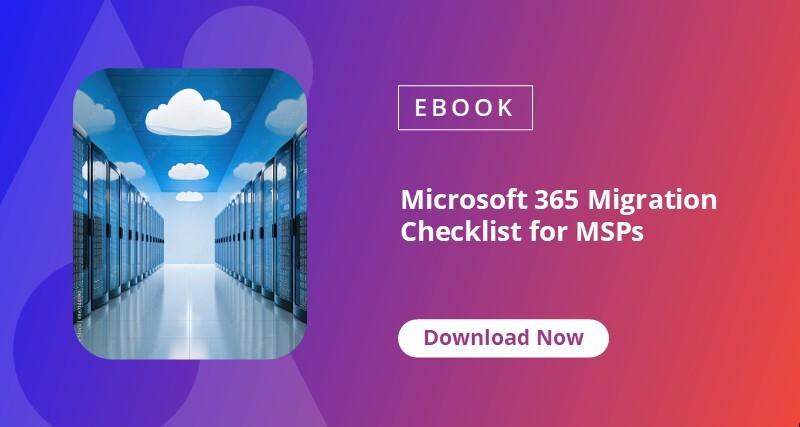In recent years, there has been an alarming increase in cyberattacks targeting defense contractors and their managed service providers (MSP). Microsoft Threat Intelligence now tracks more than 1,500 unique threat groups, including more than 600 nation-state threat actor groups, 300 cybercrime groups, 200 influence operations groups, and hundreds of others. These attacks don't just compromise individual organizations — they pose risks to national security and critical infrastructure.
With cyberthreats becoming increasingly sophisticated, the Cybersecurity Maturity Model Certification (CMMC) program marks a pivotal shift in how the US Department of Defense (DoD) approaches supply chain security. According to the State of Third-Party Risk Management 2024 report, organizations increasingly rely on a larger number of third parties, with 26% of respondents managing over 250 vendors, which represents a significant increase from 13.5% in 2020. This has elevated the risk landscape, as more third parties mean potential vulnerabilities.
As contractors and MSPs prepare for CMMC compliance, it is crucial to understand the “why” behind these regulations and the “how” of achieving compliance.
Understanding CMMC 2.0 and Key Developments
Contractors and MSPs have also recently been targets of high-profile hacking incidents because of their access to multiple customer networks. All this leads to the following questions: Should there be universal criteria or credentials that a company must attain? Who needs to meet the criteria, the third party itself or individual organizations? A majority (67%) of channel firms today believe that service/business models should be subject to greater, more formalized oversight.
Building on the foundation of CMMC 1.0, which introduces comprehensive cybersecurity best practices and proactive threat management that align with DoD standards, CMMC 2.0 implements streamlined requirements and enhances the focus on critical cybersecurity hygiene among Defense Industrial Base (DIB) contractors. Cybersecurity certification programs in Australia, Canada, the United Kingdom, and other governments are aligning with CMMC contract requirements, demonstrating a global commitment to safeguarding sensitive information and confidence that CMMC will be implemented. This will also mean more competition for DoD contracts from foreign defense suppliers.
The revised CMMC 2.0 consists of three levels depending on the information type a company handles as part of their contracts:
- CMMC Level 1 (Foundational). This refers to basic cyber hygiene and is intended for companies handling Federal Contract Information (FCI).
- CMMC Level 2 (Advanced). This is designed for companies that handle Controlled Unclassified Information (CUI).
- CMMC Level 3 (Expert). This is the highest level for companies managing the most sensitive data, like CUI, against advanced persistent threats.
By reducing the original five maturity levels in CMMC 1.0 to three in CMMC 2.0, the DoD facilitates a more straightforward path for contractors to demonstrate their cybersecurity capabilities. The purpose of CMMC is to verify that defense contractors are compliant with existing protections for FCI and CUI at a level commensurate with the risk from cyberthreats, including advanced persistent threats. The CMMC Program implements an annual affirmation requirement that is a key element for monitoring and enforcing the accountability of a company's cybersecurity status.
CMMC compliance is not a one-time process but rather an ongoing reassessment. It takes an average of six to 18 months to prepare for a CMMC Level 2 assessment, which will be available in Q1 2025. The phased roll-out of CMMC as a contractual requirement will begin around Q3 of 2025, and it will take an estimated 21 to 27 months to get contracts and solicitations certified. It will be a long journey, so don’t be left behind. Be an early adopter!
Challenges and Strategic Considerations for MSPs
Cybersecurity risks have everyone on edge these days. Organizations, including the DoD, are regularly concerned about hypothetical data breaches and ransomware attacks. It’s not a matter of “if” but “when” incidents will happen and whether countermeasures are in place to ensure protection and prevent damage. According to CompTIA IT Industry Outlook 2025, organizations turn to external technology providers for help, including tapping MSPs known for remotely managing and securing customer IT operations.
The DoD’s supply chain is only as strong as its weakest link, which is why CMMC implementation is crucial across all tiers of contractors and MSPs. Here are the potential consequences for non-compliance:
- Loss of contracts. Government contracts, particularly those involving the DoD, require contractors to achieve a specific level of CMMC certification to be eligible for the projects.
- Legal and regulatory consequences. Failure to comply may result in fines, penalties, or other legal actions against your organization.
- Reputation damage. Non-compliance with cybersecurity standards may affect your ability to win new contracts, attract customers, or maintain existing business.
- Data breach risks. A security incident may result in additional consequences for your organization, including financial losses, legal actions, and reputational damage.
- Suspension or debarment. The government may suspend or debar your organization from participating in federal contracts, which may have significant long-term consequences.
- Loss of trade secrets and sensitive information. Non-compliance may expose your organization to the risk of losing trade secrets, sensitive information, or intellectual property, which could have a detrimental impact on your competitive advantage.
Steps to Achieve CMMC Compliance with AvePoint
Compliant does not mean secure. Generally, organizations understand that clean data is crucial to their success. However, many struggle to oversee vast amounts of data across multiple collaboration platforms. Many organizations in the DIB choose to rely on Microsoft products to achieve the desired outcomes for protection mechanisms because of Microsoft’s ability to provide a single platform for collaboration, security, and compliance.

Managing increasing data volumes and complex environments can be difficult without scalable infrastructure. AvePoint offers a unified platform for MSPs to automate, scale, and grow their business by simplifying management across customers and increasing margins. Here’s how AvePoint's solutions can help partners:
- Determine your required CMMC level and organize assets. Identify the type of data your business handles and areas for improvement in your current cybersecurity posture. AvePoint can help partners seamlessly centralize information to reduce risk, easily gain visibility into your data landscape, and identify, classify, and protect sensitive information according to CMMC requirements.
- Implement controls and develop a plan of action. MSPs can use platforms like AvePoint Elements to protect clients’ environments with proactive tenant security monitoring and easy enforcement of security rules across multiple tenants. This allows them to address potential risks and develop a prioritized remediation plan quickly. This ensures that only authorized personnel have access to data such as CUI, significantly reducing the risk of data breaches and rapidly resolving any issues.
Document policies and procedures. Streamline your documentation process to ensure that you can easily provide evidence of compliance as you prepare for an assessment. MSPs can use risk management tools such as AvePoint’s Risk Management Package to monitor customer environments through summarized compliance status and streamlined reports.

- Automate compliance management. Compliance with CMMC involves ongoing monitoring and assessments. AvePoint Partner Program is purpose-built for MSPs solving IT problems. It offers a platform to manage, automate, scale, and cost-optimize to deliver managed services, business continuity and disaster recovery, as well as data security and governance solutions, providing real-time insights into security posture.
- Provide training and awareness programs. By implementing robust training programs, your organization can enhance employee vigilance to reduce the likelihood of data breaches. Leverage AvePoint’s training resources to educate employees about CMMC compliance and foster a culture of security.
Collective Action and Stronger Collaboration
With the increasing complexity of the global cyberthreat landscape as driven by sophisticated nation-state actors, rising ransomware attacks, evolving fraud tactics, persistent phishing threats, and new challenges in identity security, the need for robust security measures and ensuring compliance across the DIB has never been more critical for any defense contractor or partner aiming to work and build trust with the DoD.
MSPs have a central role in protecting customer networks. Collective action and stronger collaboration between the government, contractors, and their MSPs enhance a threat-informed defense strategy and overall accountability.
AvePoint is uniquely positioned to proactively support partners across multi-cloud environments in achieving and maintaining CMMC compliance. Through AvePoint Elements, you can gain a unified data monitoring approach that mitigates risks and the extra costs associated with addressing CMMC compliance.
Manage workspace lifecycle and governance across customer tenants efficiently using AvePoint Elements.


